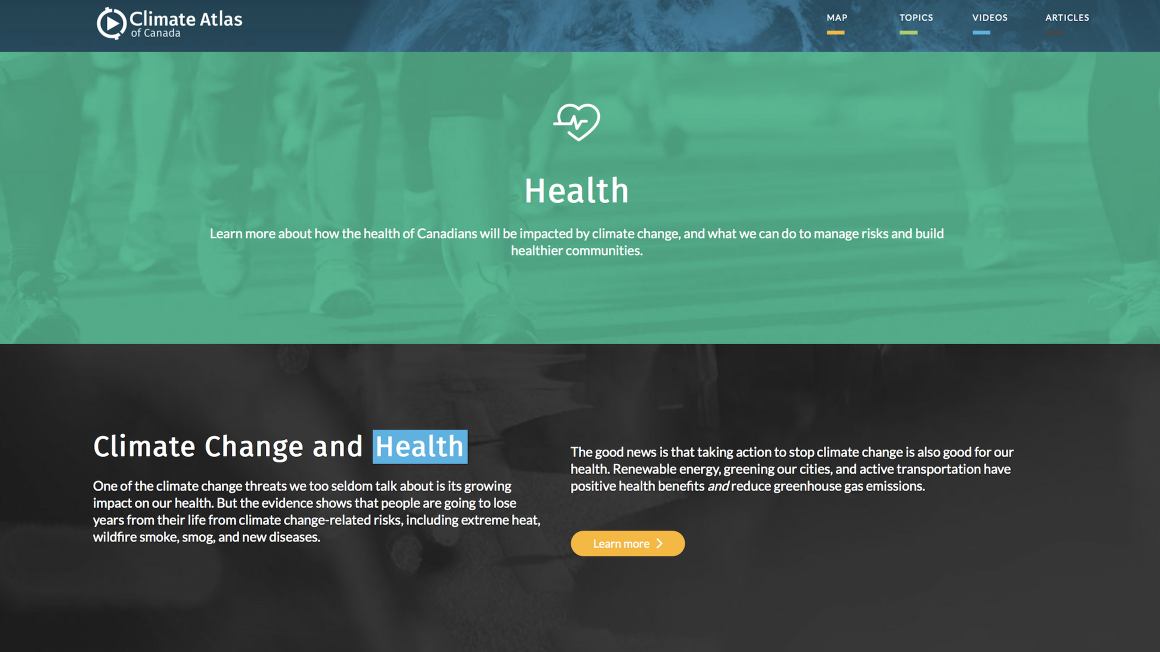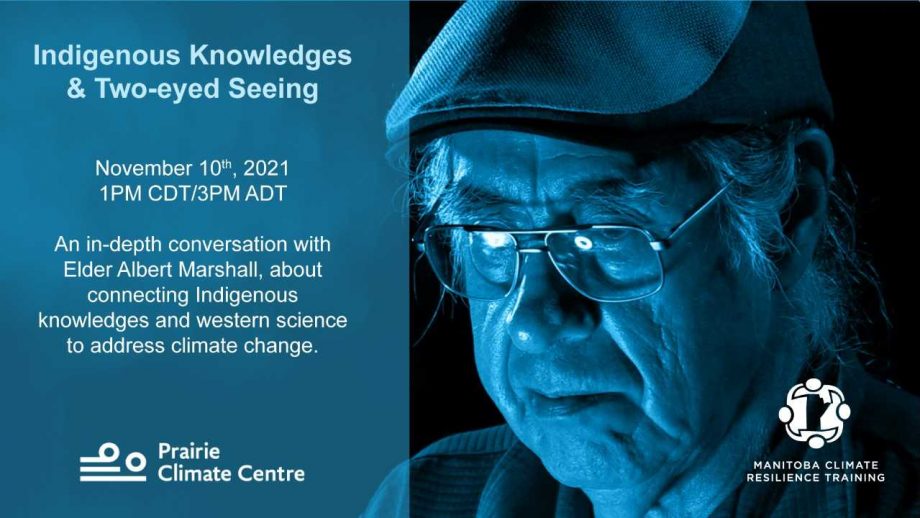Winnipeg, MB — The University of Winnipeg’s Prairie Climate Centre (PCC) has launched new content on the Climate Atlas of Canada, which explores some of the health risks and adaptation options facing Canadians regarding climate change and infectious diseases.
The content was developed in part by two high school and university students working with the PCC, who are passionate about encouraging climate change adaptation among their communities and broader society.
Puneet Sandhu is a Grade 11 student at the Maples Met School in Winnipeg with a keen interest in sustainability, health, and food systems. And Izabella Robak is a recent graduate of UWinnipeg in geography, who is continuing her research with the PCC this summer on health and climate change.
“While warmer temperatures due to climate change may be welcome in some regions of Canada, we have to educate ourselves on the potential health risks that come along with these changes,” said Robak. “Working with the PCC has allowed me to be a part of this critical step in educating others.”
New videos, articles, and maps featuring experts and affected community members from across Canada explore several key health issues under a changing climate:
- Worsening water-borne diseases from algae and bacteria — Warming temperatures, changing precipitation patterns, and longer summer seasons are increasing harmful algal blooms and bacteria in the water in some areas, which pose serious health risks to the public.
- New and increasing mosquito-borne diseases such as West Nile virus – This article and video tell the story of Canada’s increase in mosquito-borne diseases over the last 20 years, largely due to climate change. With warmer, wetter weather in our future, experts expect these diseases will become more common.
- Increasing risk and range of Lyme disease – Longer, hotter summers and more mild winters are increasing the suitable habitat for Lyme-carrying blacklegged ticks in Canada.
The PCC team has also tested the materials they created on Lyme disease and climate change to get feedback that can continually inform their evidence-based communications approach that informs the Climate Atlas of Canada.
They conducted six focus groups in three southern Manitoba communities and have recently published the results in two scholarly articles. The first focuses on public perceptions of Lyme disease and climate change and the second explores responses to the video, article, and map communications materials to understand what messages and mediums best reach different audiences.
“The health impacts of climate change are wide ranging — from increasing infectious diseases to reducing our ability to access safe drinking water,” said Dr. Ian Mauro, Executive Director of the Prairie Climate Centre. “As we see the impacts of climate change worsening, we have a responsibility to share clear, useful, evidence-based information about the risks and how Canadians can best adapt their behaviours to protect their health.”
This work was supported by the Public Health Agency of Canada, who continue to collaborate with the Prairie Climate Centre to explore best practices for engaging Canadians in conversations around health and climate change.





